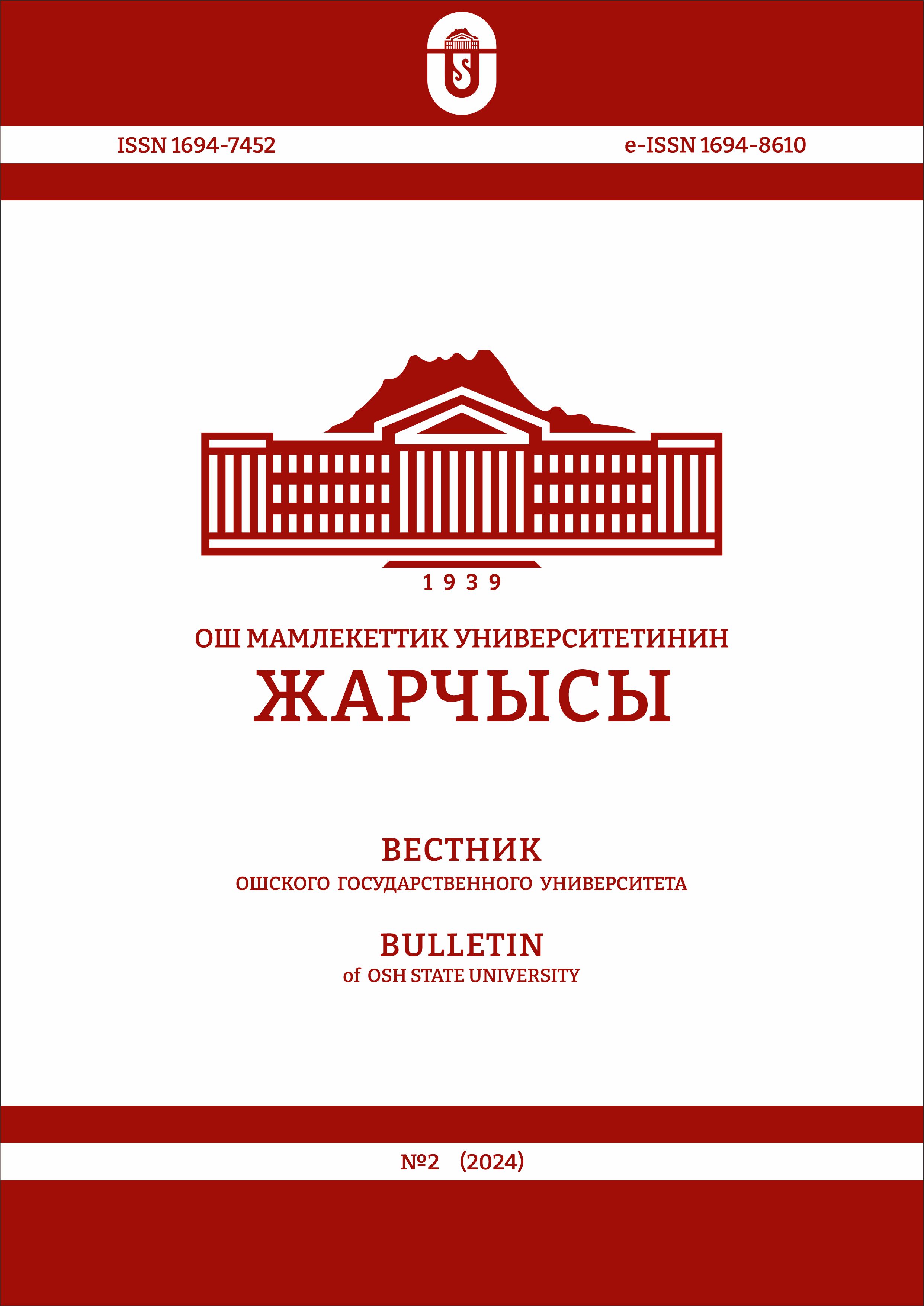THE INFLUENCE OF STUDENTS’ PERSONALITY TRAITS ON LEARNING ENGLISH
DOI:
https://doi.org/10.52754/16948610_2024_2_44Keywords:
personality traits, English language learning, students, motivation, extraversion, introversion, openness to experience, conscientiousness, successAbstract
Relevance. There are a number of factors that affect students' performance in learning English. These can be both internal and external factors. The present study focuses on the internal factors that influence students' success in learning English. Theories have been put forward and research has been conducted to identify the influence of students' mental attitudes and personality characteristics. According to these theories, mental attitudes shape a person's behaviour and attitudes. Students' personality characteristics are also believed to influence their academic performance. A questionnaire covering the personality characteristics of English language learners was used for the study. The traits analysed were extraversion, introversion, openness to experience and conscientiousness. It was also investigated how these characteristics influence the level of motivation and choice of English language learning methods. Students with pronounced extraversion prefer to interact with native speakers and work in groups, while introverts prefer individual methods such as reading and writing. The results indicate a significant influence of students' attitudes and personality traits on their success. Taking into account students' personality traits can significantly improve the effectiveness of instruction by allowing it to be tailored to the needs of each learner.
References
Abidin, M. J., Mohammadi, S. M., & Alzvari, M. M. (2012). The relationship between personality traits and language learning strategies among Iranian EFL learners. International Journal of Humanities and Social Science, 2(21), 212-220.
Allen, J. (2013). Personality in foreign language learning and teaching: An introduction to the special issue. Language Learning, 63(S1), 1-6.
Alferova, S. V. (2009). The influence of personality traits on the success of learning English. Bulletin of St. Petersburg University. Series 9. Philology. Oriental Studies. Journalism, (4), 144-149.
Arhipova, E. A. (2016). The role of personality traits in the process of learning English. Bulletin of the South Ural State University. Series: Education. Language. Socio-cultural activity, 6(1), 5-11.
Brown, H. D. (2000). Principles of Language Learning and Teaching. 4th ed. White Plains, NY: Addison Wesley Longman.
Chaihiranwattana, A., & Nook, P. (2013). The role of personality traits in predicting EFL academic success. Journal of English Language Teaching and Learning, 15(2), 45-58.
Dewaele, J. M., & Furnham, A. (2000). Personality and speech production: A pilot study of second language learners. Personality and Individual Differences, 28(2), 355-365. DOI: https://doi.org/10.1016/S0191-8869(99)00106-3
Dörnyei, Z., & Skehan, P. (2003). Individual differences in second language learning. In C. J. Doughty & M. H. Long (Eds.), The handbook of second language acquisition (pp. 589-630). Blackwell Publishing. DOI: https://doi.org/10.1002/9780470756492.ch18
Gadhalakshmi, S. (2013). Impact of personality traits on English language learning. ELT Journal, 67(4), 432-440.
Gardner, R. C., & Lambert, W. E. (1972). Attitudes and motivation in second-language learning. Rowley, Mass: Newbury House.
Harrel, K. (2005). Attitude is Everything: 10 Life Changing Steps to Turn attitude into action. Revised Edition. New York: Harper Business.
MacIntyre, P. D., Clément, R., Dörnyei, Z., & Noels, K. A. (1998). Conceptualizing willingness to communicate in a L2: A situational model of L2 confidence and affiliation. The Modern Language Journal, 82(4), 545-562. DOI: https://doi.org/10.1111/j.1540-4781.1998.tb05543.x
Niyazova, Zh. D. The need for teaching English for social needs of a specialist in medical professional education / Zh. D. Niyazova // Bulletin of Osh State University. – 2021. – Vol. 4, No. 4. – P. 112-118. – DOI: 10.52754/16947452_2021_4_4_112. – EDN: KOZRLK. DOI: https://doi.org/10.52754/16947452_2021_4_4_112
Norton, B., & Toohey, K. (2011). Identity, language learning, and social change. Language Teaching, 44(4), 412-446. DOI: https://doi.org/10.1017/S0261444811000309
Pour, S. (2015). The relationship between personality traits and foreign language learning: A case study of Iranian EFL learners. Iranian Journal of Language Teaching Research, 3(1), 75-90.
Иметова, Ж.К. Жождордогу тилдик эмес факультеттерде кесиптик англис тилин окутуунун учурдагы көйгөйлөрү жана аны чечүүнүн айрым жолдору / Ж. К. Иметова, Г. К. Жакаева // Вестник Ошского государственного университета. – 2021. – Vol. 4, No. 4. – P. 60-66. – DOI: 10.52754/16947452_2021_4_4_60. – EDN: FZBQRO. DOI: https://doi.org/10.52754/16947452_2021_4_4_60
Downloads
Published
How to Cite
Issue
Section
License
Copyright (c) 2024 The Author(s)

This work is licensed under a Creative Commons Attribution-NonCommercial 4.0 International License.



